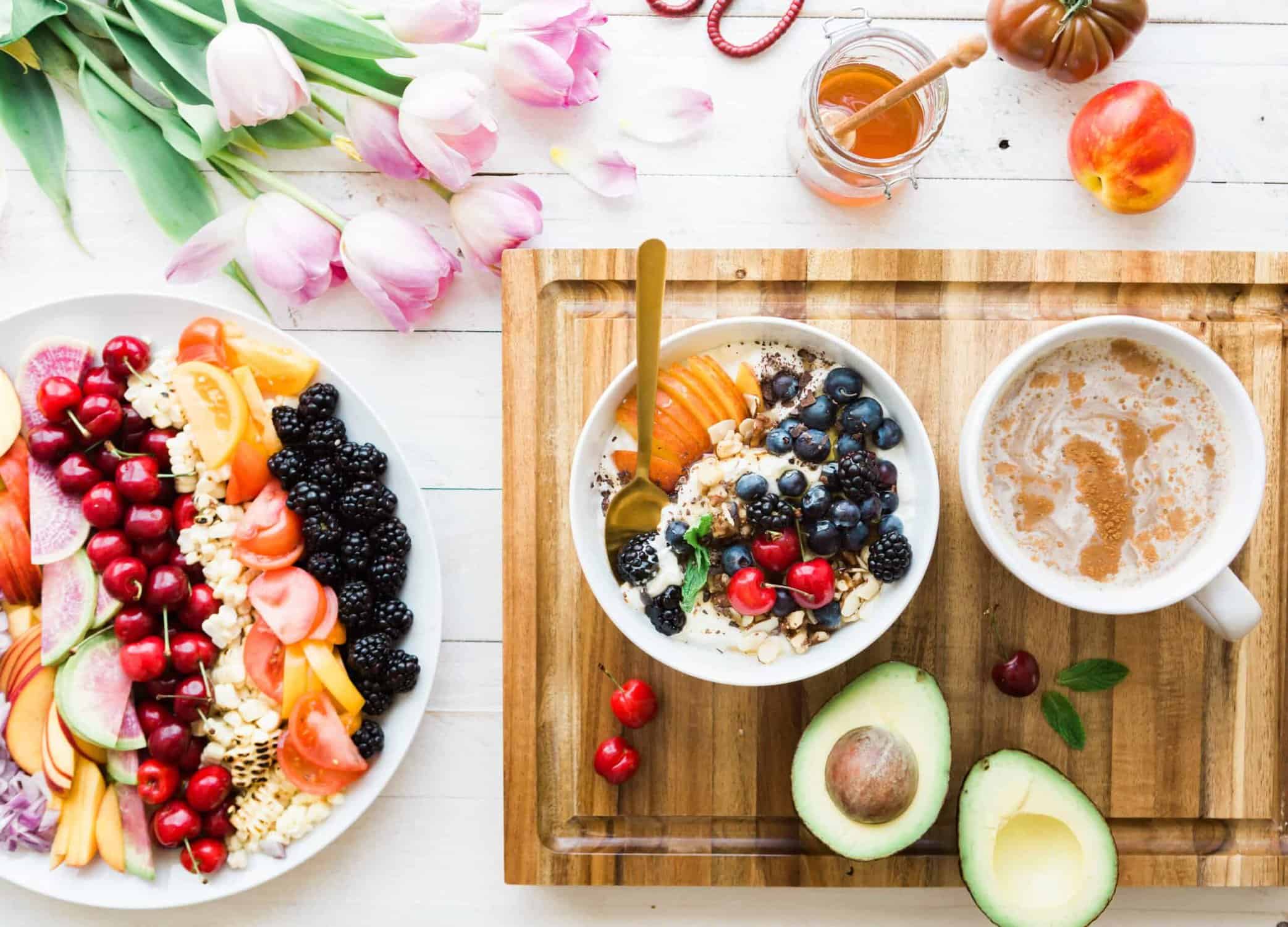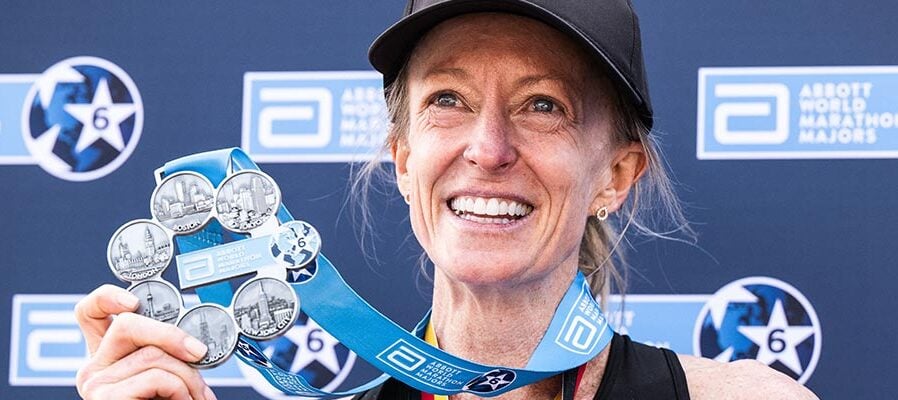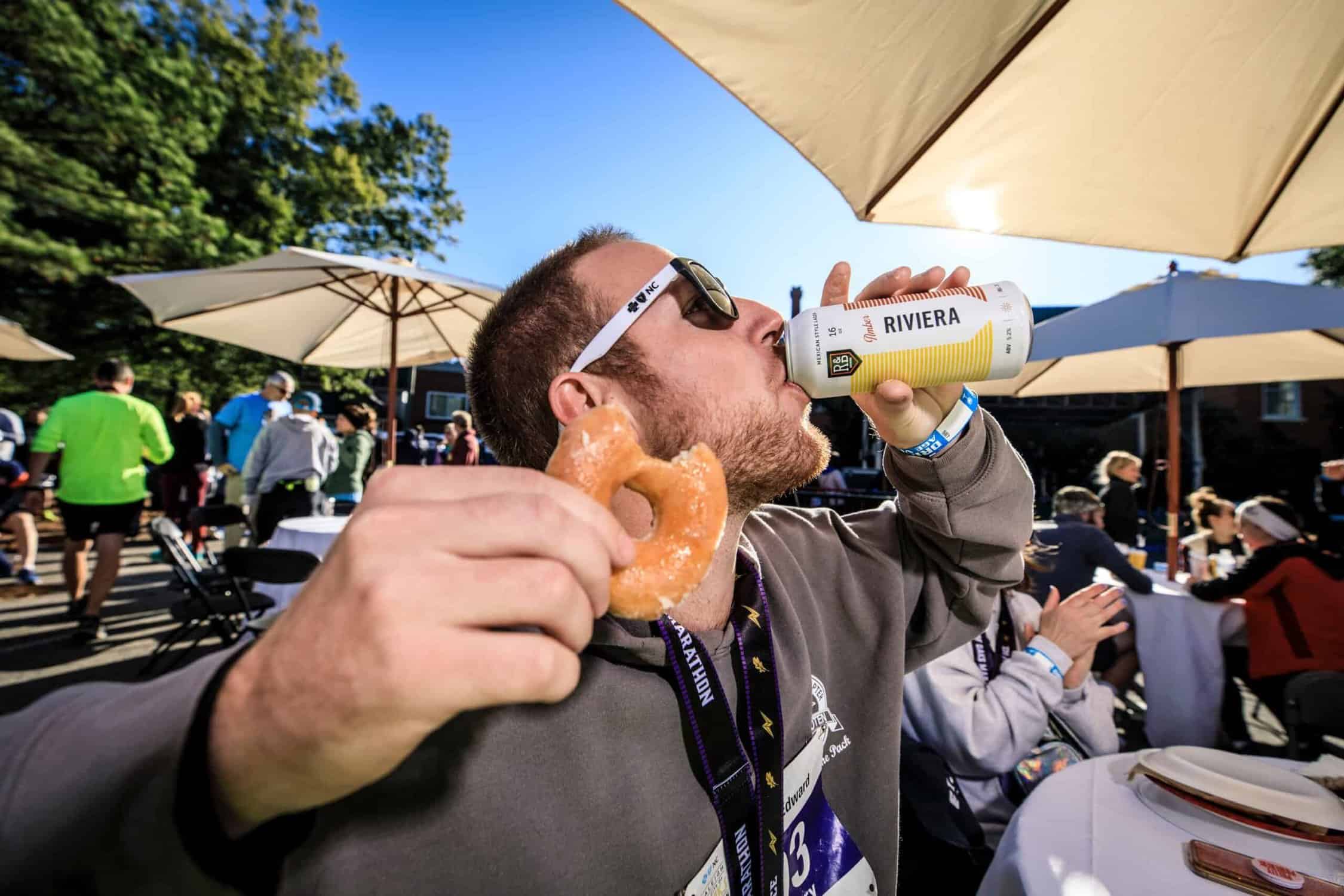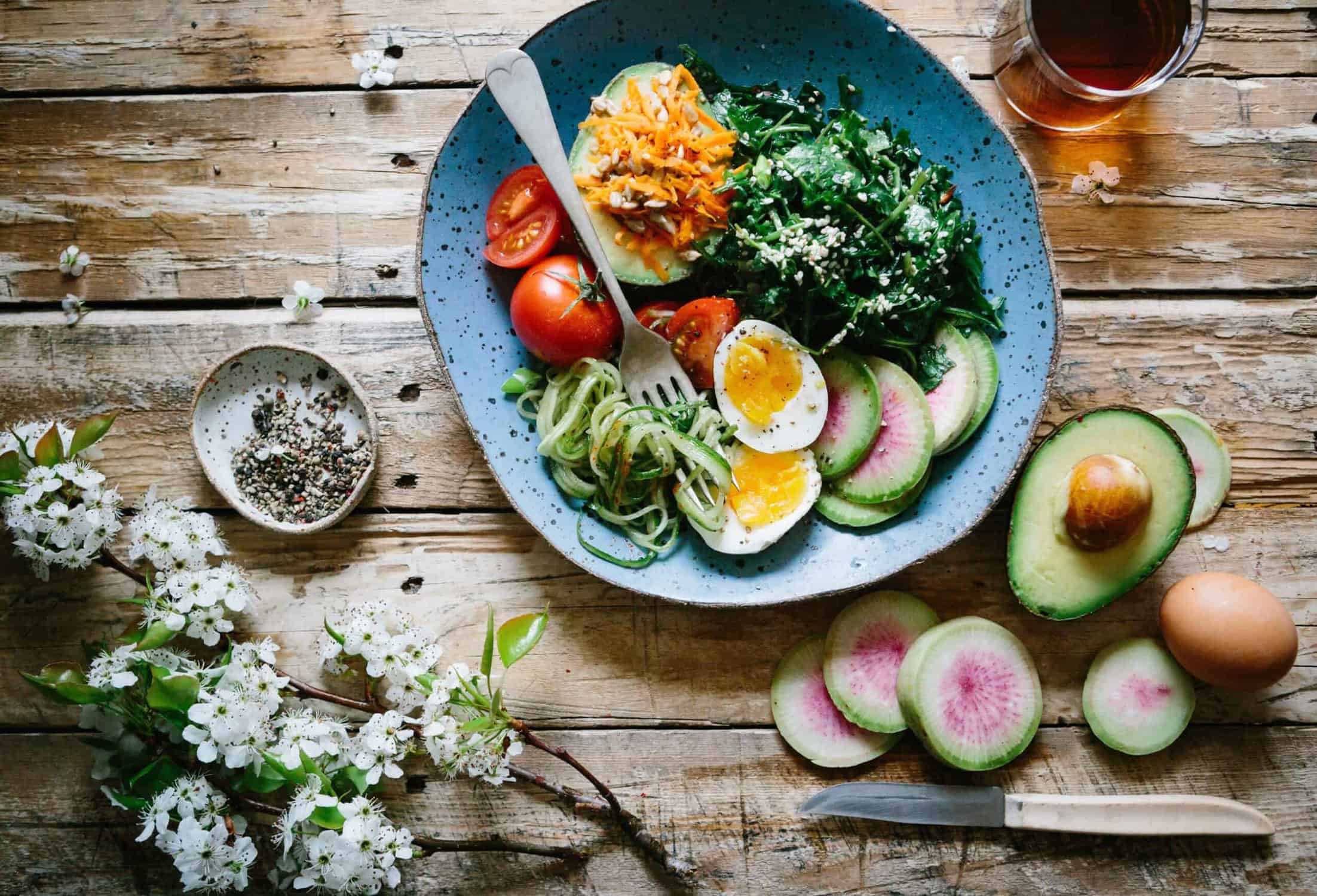Marathon training requires more than just pounding pavement. It also involves pounding down calories. And for endurance runners, what to eat the week before the marathon will make or break your performance.
I remember learning this the hard way when I competed in my first 26.2 miler two years ago. I paid no attention to carb loading, electrolytes, or my pre-race meal, and boy, did I feel it. Without the proper glycogen stores needed before an endurance event, I hit the wall 20 miles into the race and missed my goal time.
I have since improved my race week nutrition. Being a Registered Dietitian, I’ve architected exactly how to fuel my body to optimize my performance well before the race starts.
In this blog post, I will guide you through the best practices on nutrition the week before your marathon, a comprehensive nutrition plan for that week, as well as recommendations for the night before, day before, and hours leading up to your full marathon.
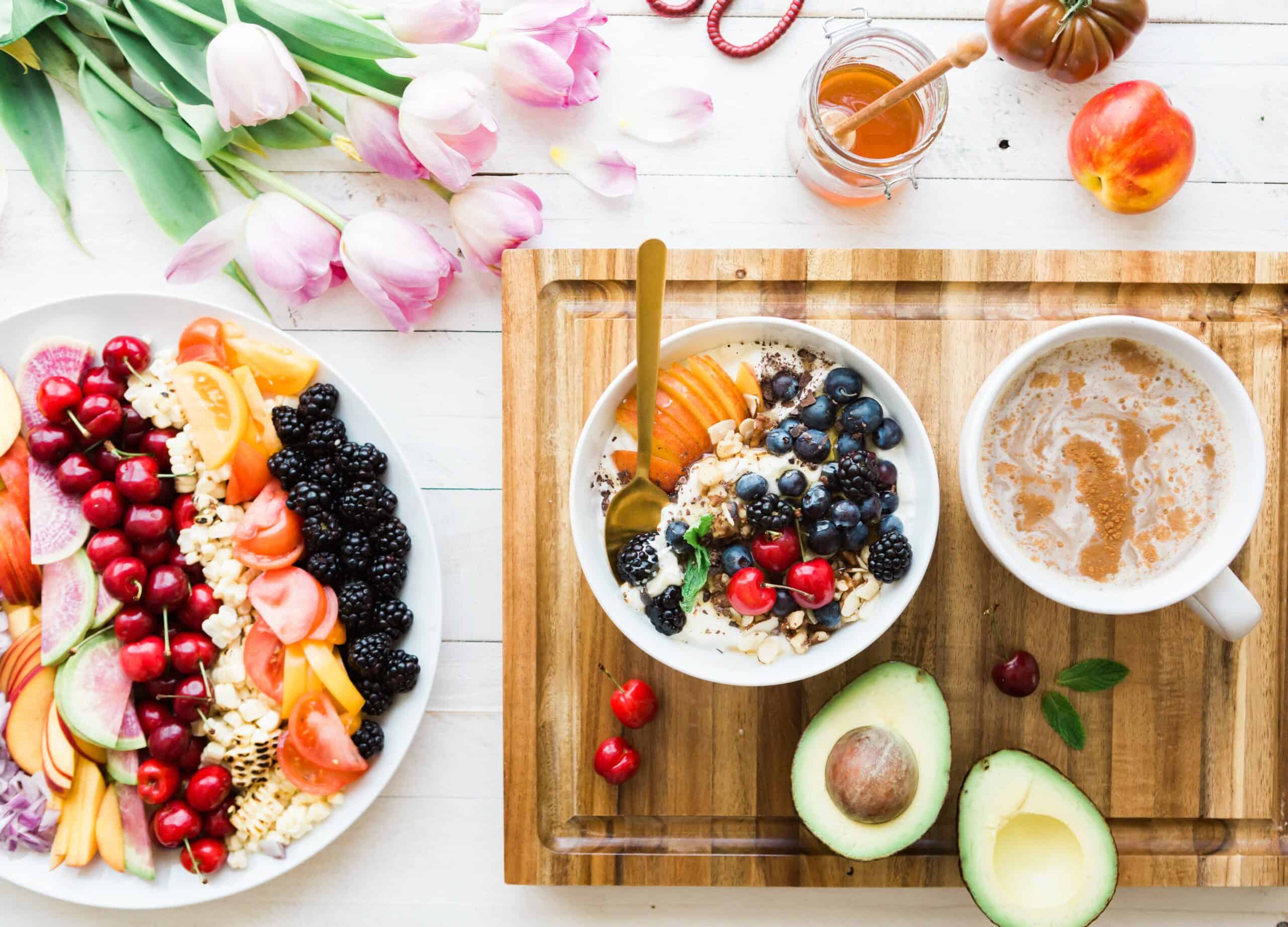
What to eat the week before a marathon
What you eat in the days leading up to your big race matters!
One of the cornerstones of endurance diets is carbohydrate loading – more commonly known as carb loading. Carb loading is considered one of the most important performance enhancing nutrition strategies used by long distance runners.
For either the distance of the marathon or a half marathon, proper carb loading gives you the energy you need to perform at your best on race day.
This is one of a few dietary strategies as it relates to your week before the marathon. You should also consider:
- Eat high-quality, lean proteins
- Balance your diet with healthy fats
- Hydration and electrolyte balances
- Supplements the week before your marathon
Let’s dive into how and what to eat the week before a marathon:
Carbohydrate loading
The goal of the carb loading phase is to maximize glycogen stores in the muscles and liver, which are primary fuel sources during exercise.
Muscle glycogen is broken down to glucose in the body which becomes a readily available energy source during the run.
Carb loading won’t make you run faster – that’s what your marathon training is for – but it will help prevent you from what runner’s call “bonking” or “hitting a wall.” This is when the available glucose and glycogen reserves are used and your body switches to burning fat for fuel.
It’s less efficient. Your body will let you know.
Carb loading is a crucial sports medicine practice for athletes participating in events lasting longer than 90 minutes, such as marathons, half marathons, and other endurance events like Ironman.
Carb loading is not necessary for shorter races like 5kms or 10kms since it is unlikely that you will use up the glycogen stored in your muscles within the time it takes to finish those races.
You should start carbo loading 7 days before a marathon.
What you eat the week before a marathon will translate into energy reserves available to you on your race date.
The nutrition strategy here is to consume 7-10 grams of carbohydrate per kilogram of body weight per day during the carbo-loading phase.
As an example, if you weigh 70 kilograms (or 154 pounds), you should aim for approximately 490-700 grams of carbs each day during the 7 days leading up to race morning. This is a lot more than people might expect.
Some staple foods to eat when carb loading include:
- Sweet potatoes – 27g per serving
- Oatmeal – 27g per serving
- Quinoa – 39g per serving
- Brown Rice – 45g per serving
- Pasta – 14g per serving
- Toast – 13g per serving
- Bagel – 48g per serving
- Bananas – 27g per serving
Even though you might be used to healthy whole grains and complex carbohydrates, lower your fiber intake during the carbo-loading phase. Excess fiber is difficult to digest and may give you stomach issues during the pre-race phase.
Read our blog post to learn the ins and outs of carb loading. Consult a Registered Dietitian to personalize your carb loading meal plan and optimize your taper training plan.
Eat high quality protein
During the carb loading phase, 85-90% of your calories will be coming from carbs. Simultaneously, this means that you’ll be decreasing your veggies, fat, and protein intake.
However, protein plays a crucial role in muscle repair and recovery even during your low mileage week before your marathon. Make sure the protein sources you eat are high in quality.
The highest quality of lean meat sources are chicken, turkey, fish, beans, lentils, and tofu in your meals to support your marathon training and aid in muscle recovery before the race.
Choose healthy fats
Similarly, make healthy fat choices the week before your marathon.
Include healthy fats in your meals to maintain a balanced diet like avocados, nuts, seeds, peanut butter, and olive oil. These fats help provide sustained energy and support overall health.
Hydration and electrolytes
Hydration is a cornerstone of performance. Stay hydrated by consuming plenty of water and sports drinks throughout the carb-loading phase.
During the week leading up to your marathon, consume 4-8 oz water 6 times per day.
If your marathon is expected to be during warm weather, consider a sports drink like Gatorade which contains also carbohydrates, salt, and other electrolytes which will prevent cramping.
Related: Salt Tablets for Runners
Take high-quality supplements
Beetroot, tart cherry, and beta-alanine supplements can all support running performance. For example, tart cherry juice can enhance running performance, alleviate pain and discomfort, and enhance recovery after both endurance and strength workouts.
However, don’t take any new supplements the week before a marathon. If you are at least 3 weeks out from your marathon, consider adding performance-enhancing supplements for runners to your marathon nutrition plan.
To get a more comprehensive look at supplementation for runners, read our guide here.
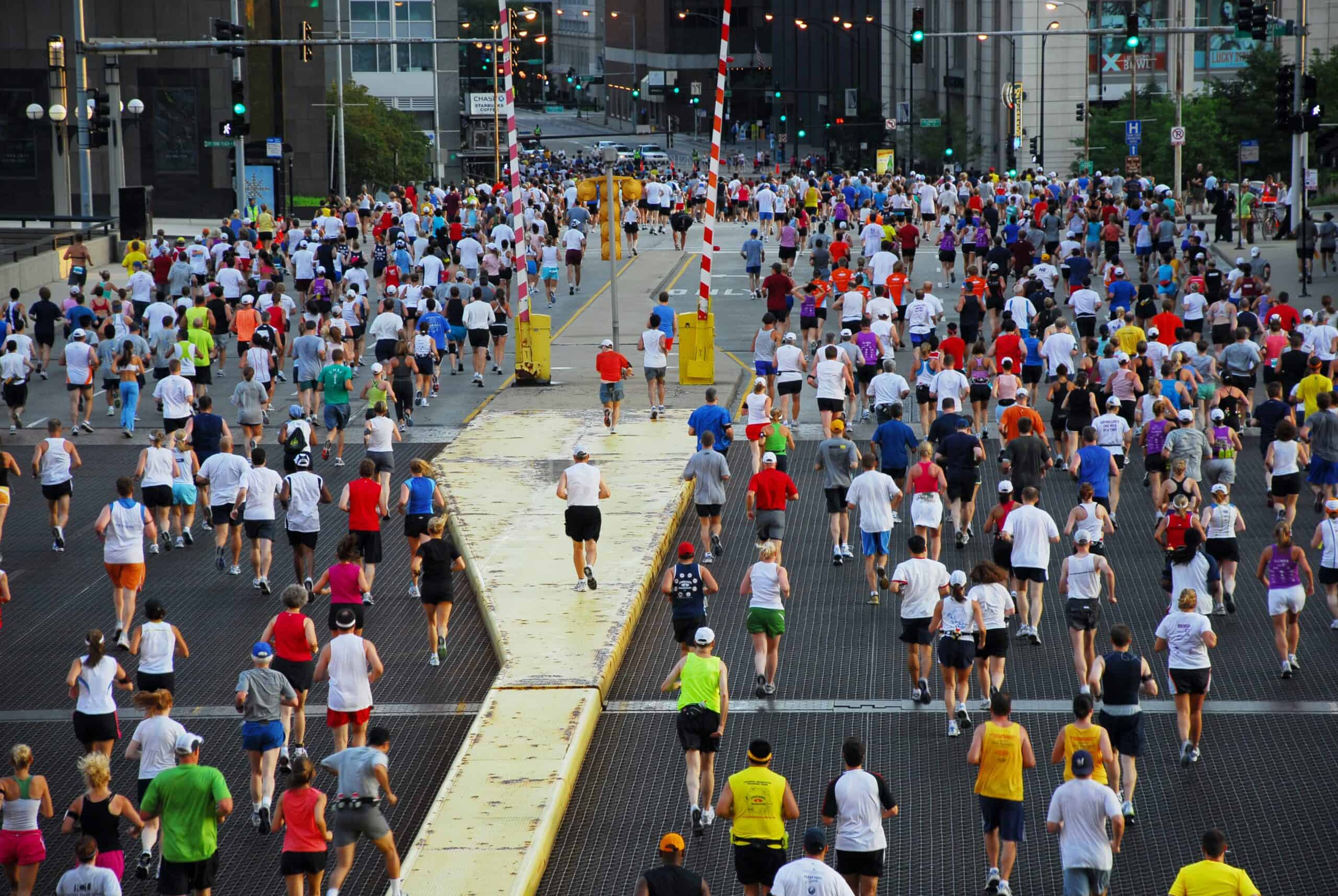
What to eat the day before a marathon
The day before the race is crucial for fueling your body and ensuring you wake up feeling energized and ready to go. The day before your race, up your carb intake to 8 to 12 grams of carbs per kilogram of weight. This is the peak of your high carbohydrate diet and it is your opportunity to top off your energy stores.
The day before a marathon is the time to load up on carbohydrate-rich foods like bagels, pasta, rice, potatoes, energy gels, and breads.
You should also stay hydrated with water and sports drinks. Snacking on easily digestible foods such as fruits, energy bars, yogurt, or smoothies between meals is a great way to keep your carb intake high. Now is not the time for new foods. Stick to what you know.
While it’s important to have a carb-packed dinner, don’t neglect your breakfast and lunch, which should also be high in carbs. People often make this mistake and bank on their pasta dinner to be enough (hint: it’s not). I suggest practicing dialing in your day before nutrition before long training runs to figure out what works best for you.
What to eat the night before a marathon
The night before your marathon, have a high-carb, low-fat meal that is familiar to your digestive system.
Choose easily digestible foods such as pasta, rice, bread, or potatoes as your main carbohydrate source.
Avoid heavy, fatty, or high-fiber foods that may cause stomach issues. Alfredo pasta is an example of a high fat meal that probably won’t sit well! Some runners swear by pizza the night before a race, but it is way too heavy in fat for me (unless it’s homemade).
Before bed, eat a small carb snack the night before your race like some graham crackers or pretzels for extra carbs. Again, limit fat and fiber.
As mentioned above, gradually increase your carbohydrate intake in the days leading up to your race. Don’t bank on one meal the night before to be enough!
What to eat on race day: The pre-race meal
2-4 hours before reaching the starting line, eat a meal that contains 400-500 calories and is composed of protein, simple carbs, and fluids. Again, avoid high fibre, high fat, and new foods, which can cause digestive issues.
Good choices for race day breakfast include a combination of any of:
- toast
- bagel
- cereal
- fruit
- small amounts of peanut or almond butter
- low-fat cheese
- low-fat milk
- fruit smoothie
Many athletes enjoy toast with peanut butter and banana, oatmeal with berries, or cereal.
Melanie Mitchell reports eating an egg + bagel + half of a croissant + dried fruit before her Boston Marathon this year.
Race day is not the time to try a new breakfast. Stick to what you know and what you know your body will tolerate.
In the few minutes prior to the race, have some sips of water or sports drinks. If you’ve trained with energy gels or chews, have one 5 minutes before the start of your marathon.
FAQ
Carbohydrate loading is the most important performance enhancing strategy to use the week before your marathon. Consume 7-10 grams of carbohydrate per kilogram of body weight per day for 7 days leading up to your race.
You should focus on your taper to give your muscles a chance to rebuild and restore. Eat a healthy diet and focus on your carb load.
Avoid foods that give you gas or GI issues, especially in the two days before your race. You should avoid fatty foods, spicy foods, and new foods. And, avoid alcohol and excessive caffeine.
Some staple foods to eat when carb loading include: sweet potatoes, oatmeal, quinoa, brown rice, pasta, toast, bagels, crackers, bananas and dried fruit.
2-4 hours before reaching the starting line, eat a meal that contains 400-500 calories and is composed of protein, simple carbs, and fluids. Good choices for race day breakfast include a combination of any of: toast, bagel, cereal, fruit, small amounts of peanut or almond butter.

